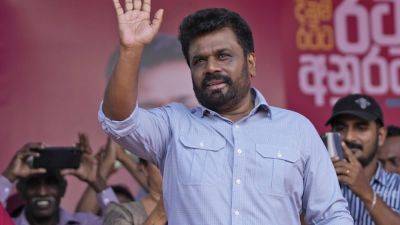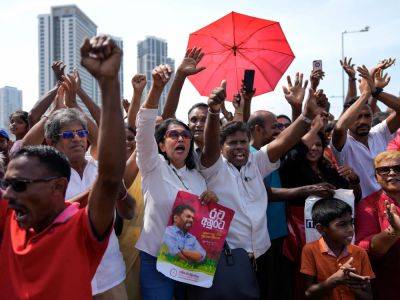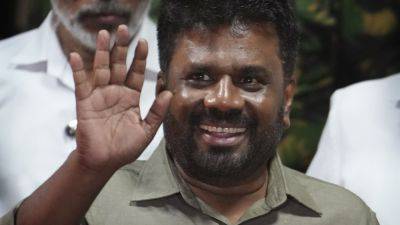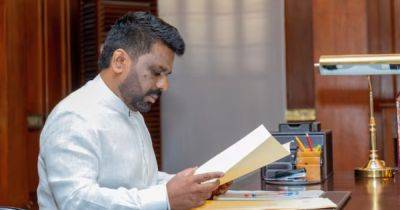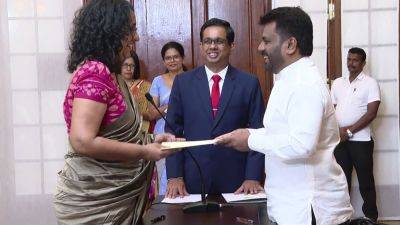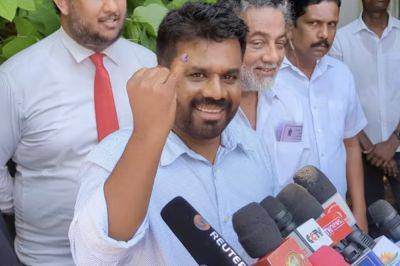Sri Lankans elect Marxist-leaning Dissanayake as president to fix economy
COLOMBO — Sri Lankans elected Marxist-leaning Anura Kumara Dissanayake as new president on Sunday (Sept 22), putting faith in his pledge to fight corruption and bolster a fragile economic recovery following the South Asian nation's worst financial crisis in decades.
Dissanayake, 55, who does not possess political lineage like some of his rivals in the presidential election, led from start to finish during the counting of votes, knocking out incumbent President Ranil Wickremesinghe and opposition leader Sajith Premadasa.
"We believe that we can turn this country around, we can build a stable government... and move forward. For me this is not a position, it is a responsibility," Dissanayake told reporters after his victory which was confirmed after a second tally of votes.
The election was a referendum on Wickremesinghe, who led the heavily indebted nation's fragile economic recovery from an economic meltdown but the austerity measures that were key to this recovery angered voters. He finished third with 17 per cent of the votes.
"Mr. President, here I handover to you with much love, the dear child called Sri Lanka, whom we both love very dearly," Wickremesinghe, 75, said in a statement conceding defeat.
Dissanayake polled 5.6 million or 42.3 per cent of the votes, a massive boost to the 3 per cent he managed in the last presidential election in 2019. Premadasa was second at 32.8 per cent.
It was the first time in the Indian Ocean island's history that the presidential race was decided by a second tally of votes after the top two candidates failed to win the mandatory 50 per cent of votes to be declared winner.
Under the electoral system, voters cast three preferential votes for their chosen candidates. If no candidate


